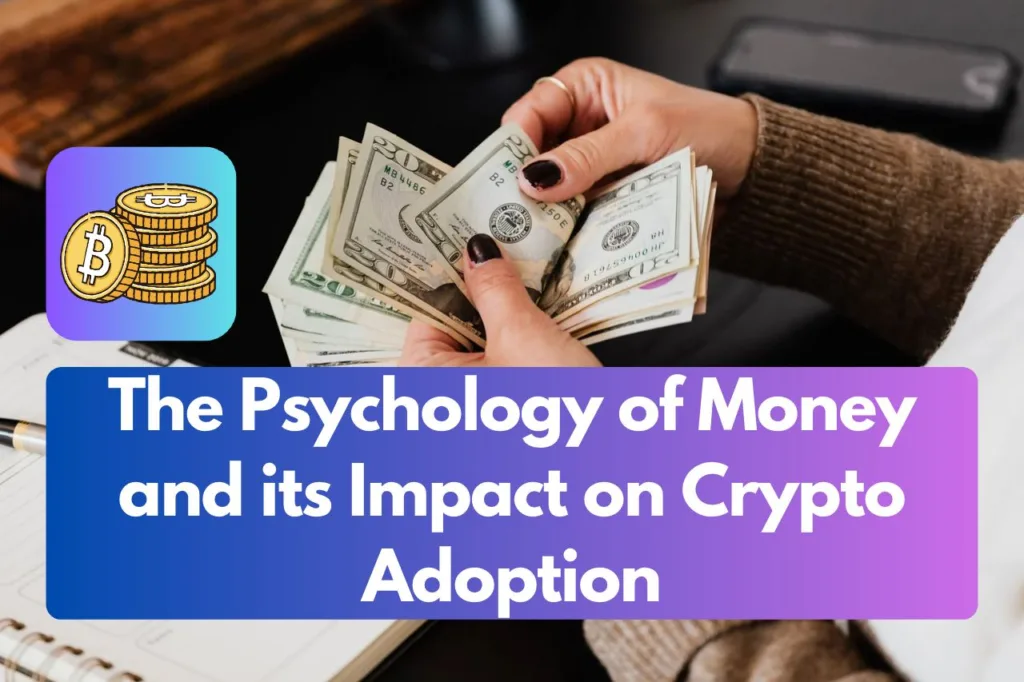
Introduction
Money has always been a fundamental part of human society. It is a medium of exchange that helps us fulfill our daily needs and wants. The concept of money has evolved over time, from barter to cash to digital currencies. With the rise of cryptocurrencies, the world is witnessing a new era of financial innovation. However, the adoption of cryptocurrencies is not as widespread as it should be. In this article, I will explore the psychology of money and its impact on the adoption of cryptocurrencies.
🧠 Understanding the Psychology of Money
Money is not just a piece of paper or a digital token; it has a deep psychological impact on our lives. Our attitude towards money is shaped by our upbringing, culture, and past experiences. According to the research, people have a complex relationship with money. Some people view it as a means to an end, while others see it as a source of power and prestige. Our behavior toward money is influenced by various factors such as our personality traits, cognitive biases, and emotions.
🔍 The Role of Cognitive Biases in Financial Decision Making
Cognitive biases are the inherent flaws in our thinking that can lead us to irrational decisions. These biases can affect our financial decision-making process and impact our investment choices. For instance, the sunk cost fallacy is a common cognitive bias where we tend to continue investing in a project or asset even if it is not profitable, just because we have already invested in it. Similarly, the availability heuristic bias can influence our investment choices based on the information that is easily accessible to us, rather than a rational analysis of the market.
😔 Emotions and Money
Our emotions also play a crucial role in our financial decision-making process. Fear, greed, and overconfidence are some of the emotions that can impact our investment choices. For instance, the fear of missing out (FOMO) can influence us to invest in cryptocurrencies just because everyone else is doing it, even if we don’t understand the technology behind it. On the other hand, greed can lead us to invest in high-risk assets, hoping for quick profits.
💻 Cryptocurrencies and the Psychology of Money
The adoption of cryptocurrencies is still in its early stages, and one of the major reasons for this is the psychological barriers associated with them. For instance, fearing the unknown can make people skeptical about cryptocurrencies. Moreover, the lack of regulation and security concerns can also impact people’s trust in digital currencies. Additionally, people who have grown up using traditional forms of money may find it difficult to shift to a completely new system.
🚀 Overcoming Psychological Barriers to Crypto Adoption
To overcome the psychological barriers to crypto adoption, it is important to educate people about the benefits and risks of cryptocurrencies. This can help people make informed decisions based on rational analysis rather than emotions and biases. Moreover, the government and regulatory bodies can play a crucial role in building trust in cryptocurrencies by implementing regulations and security measures. Furthermore, the development of user-friendly interfaces and tools can also make it easier for people to adopt cryptocurrencies.
📚 Frequently Asked Questions
🤔 What is the psychology of money?
The psychology of money refers to the complex relationship between humans and money. It includes our attitudes, behaviors, emotions, and cognitive biases toward money.
🤔 How do cognitive biases impact financial decision-making?
Cognitive biases can lead to irrational financial decisions by influencing our thinking process. For instance, the sunk cost fallacy can lead us to continue investing in unprofitable projects, while the availability heuristic can influence our investment choices based on easily accessible information.
🤔 What are the psychological barriers to crypto adoption?
The fear of the unknown, lack of regulation, security concerns, and difficulty in shifting from traditional forms of money are some of the psychological barriers to crypto adoption.
🤔 How can we overcome psychological barriers to crypto adoption?
To overcome psychological barriers to crypto adoption, education about the benefits and risks of cryptocurrencies is essential. This helps people make informed decisions based on rational analysis rather than emotions and biases. Additionally, regulatory bodies can play a crucial role in building trust in cryptocurrencies by implementing regulations and security measures. User-friendly interfaces and tools can also make it easier for people to adopt cryptocurrencies.
📈 Conclusion
Money is not just a medium of exchange; it has a deep psychological impact on our lives. The psychology of money plays a crucial role in the adoption of cryptocurrencies. Cognitive biases, emotions, and psychological barriers can influence our investment decisions and impact the adoption of cryptocurrencies. However, by educating people about the benefits and risks of cryptocurrencies, implementing regulations and security measures, and developing user-friendly interfaces and tools, we can overcome these barriers and pave the way for more widespread adoption of cryptocurrencies.



